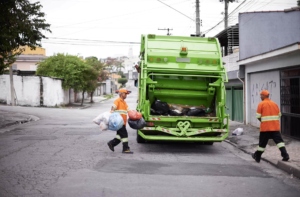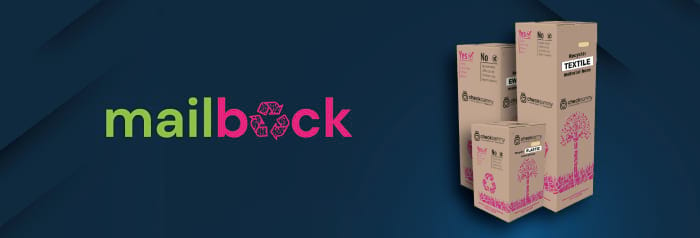The Economic Benefits of Sustainable Junk Removal
Junk is junk – so how you dispose of it doesn’t matter, right? Well, it isn’t quite that simple. What you do with that junk and how your business disposes of it can be quite costly, especially when improper disposal leads to incurred fines or steep landfill fees. The fastest option for getting rid of junk may seem like the most advantageous option, but when it comes to commercial junk removal, there are a number of factors that determine the economic costs of this service.
And if you compare traditional junk removal practices with sustainable junk removal practices, the latter offers numerous benefits. Today, we’re digging into the top 5 economic benefits of sustainable junk removal for businesses. Let’s take a look.
Benefit 1: Cost Savings
Implementing sustainable junk removal can contribute cost savings in several ways. By recycling more materials, sending fewer items to the landfill, and repurposing more items, businesses can reduce the waste disposal costs associated with landfill hauls and incineration.
- For example: A packaging supplier might save money by recycling and reusing packaging materials, thus decreasing the volume of waste requiring disposal.
Another significant opportunity for savings lies in lowering energy costs by implementing sustainable practices like composting and recycling. Instead of tossing organic waste into dumpsters, you can recycle the material organically and thus reduce energy consumption from the transportation and processing of this waste.
- For example: A corporate cafeteria that composts organic waste on-site can reduce the need for waste transportation and energy-intensive waste processing.
It’s also important to keep in mind that some local and national governments offer financial incentives, including tax breaks and grants, to organizations that implement sustainable junk removal and/or waste management practices.
- For example: A construction company that starts recycling and reusing building materials may qualify for incentives or rebates of this nature.
Benefit 2: Increased Revenue
Recycling and repurposing materials – instead of sending all your junk to the landfill – can create new revenue streams for certain organizations, as well as help increase revenue from current sources by making your brand more attractive to sustainable-minded consumers.
New revenue streams are possible for many businesses that commit to a sustainable junk removal strategy.
- For example: A manufacturing company that recycles scrap metal, paper, or plastic can then sell these materials to other businesses or recycling centers, creating an additional income stream.
The refurbished electronics market is a prime example of creating new revenue out of recycled materials.
- For example: An electronics manufacturer can increase their revenue by collecting and refurbishing old devices they originally manufactured and then reselling them at a lower cost.
And let’s not forget about waste-to-energy conversion. Certain materials can be turned into energy in a sustainable way, while also generating more revenue for companies.
- For example: A food processing company can use waste byproducts to produce biogas, which can then be sold as a renewable energy source or used to offset the company’s own energy consumption.
By adopting sustainable junk removal practices, companies can attract new, eco-conscious customers as well as opportunities for new partnerships or collaborations with other eco-friendly businesses. There are numerous ways that corporations can capitalize on the growing demand for sustainable solutions and create new opportunities for growth once you demonstrate your commitment to these practices.
Benefit 3: Improved Reputation
You can also improve your business’s reputation by adopting sustainable junk removal and waste management practices. With higher customer and stakeholder expectations for companies to act responsibly and sustainably, implementing sustainable junk removal practices is an important way for businesses to show their commitment to protecting the environment.
Adding a sustainable junk removal program shows your company’s commitment to environmental stewardship, social responsibility, and long-term sustainability. When companies adopt these types of practices, consumers often regard them as more ethical, trustworthy, and forward-thinking.
- For example: A coffee shop that composts food waste and uses biodegradable packaging can strengthen its brand reputation as an environmentally conscious business.
Sustainable junk removal practices can also signal a company’s commitment to social responsibility by supporting the local community and/or marginalized groups.
- For example: A clothing retailer that donates unsold items to charities or operates a textile recycling program can enhance its brand reputation by demonstrating social responsibility.
Green certifications and awards are also an excellent way for your business to enhance its reputation and attract and retain more customers.
- For example: A hotel that earns a LEED (Leadership in Energy and Environmental Design) certification for its waste reduction efforts can use this recognition to attract eco-conscious guests.
Sustainable junk removal practices can also contribute to a positive work environment and boost employee morale, which can, in turn, improve a company’s brand reputation.
Benefit 4: Job Creation
The implementation of sustainable junk removal practices can create jobs in several areas by promoting new business opportunities, fostering innovation, and supporting community engagement.
Increased demand for recycling and composting services in a local area often requires expanding or establishing additional recycling and composting facilities. This helps create new job opportunities for workers in waste collection, sorting, processing, and management.
- For example: A city that invests in expanding its recycling infrastructure can create jobs for recycling truck drivers, waste management specialists, and recycling center workers.
As more companies adopt sustainable junk removal practices, this may lead to an increased demand for specialized eco-friendly waste management services. New businesses may be created to provide these targeted services, like green demolition, e-waste recycling, or zero-waste consulting. These businesses can create jobs for technicians, consultants, and other professionals with expertise in sustainable waste management.
- For example: A startup that offers sustainable construction waste removal services might create jobs for construction waste specialists, truck drivers, and recycling center workers.
With sustainable handling of junk often come more efforts to extend the life of products and materials through reuse, repair, and refurbishment. This can lead to more local repair shops, refurbishment centers, and second-hand stores, creating job opportunities for skilled technicians, artisans, and salespeople.
- For example: New local repair shops that open in a community may employ electronic repair technicians, customer service representatives, and store managers.
There are many ways that sustainable junk removal can create new job opportunities in the local economy – these are just a few examples.
Benefit 5: Reduced Carbon Footprint
You can also reduce your carbon footprint through sustainable efforts like junk removal. By reducing waste sent to landfills, you can conserve resources and energy and reduce the need for new resources.
When you opt for sustainable transportation options for junk collection and disposal, like electric vehicles, biodiesel-powered trucks, or optimized collection routes, you can minimize fuel consumption and contribute to a reduced carbon footprint.
Companies that participate in extended producer responsibility (EPR) programs can reduce their carbon footprint by assuming responsibility for managing the end-of-life of their products. When product manufacturers design products that are easy to recycle, repair, or refurbish, they can help lower the carbon footprint associated with waste disposal.
- For example: An electronics manufacturer that designs its devices with easy disassembly and modular parts and can facilitate recycling and reduce the energy consumption and emissions from e-waste disposal.
If you can’t directly reduce your organization’s carbon emissions, participating in a carbon offset program is an excellent alternative. CheckSammy’s carbon offset marketplace makes this process easy for businesses.
Sustainable Junk Removal, Simplified
When pursued with commitment, sustainable junk removal can provide a number of economic benefits, including the five discussed here. By adopting sustainable practices such as this, your business can demonstrate its commitment to environmental stewardship while also benefiting economically.
To see how CheckSammy can help with your sustainable junk removal needs, contact us today.
See Our Services
Create a custom solution to meet your waste and sustainability goals. Contact us today!
Continue reading
Dive deeper into the CheckSammy Blog by reading one of our posts below
Feeling the Pain of Higher Resident Turnover? Apartment Junk Removal Can Help
If you’re a property manager, you’ve probably had a significant increase in tenant turnover over the last couple of years. So it’s no wonder apartment junk removal may be top of mind for you right now. There are several reasons for this shift. For one, the housing market is on fire right now. In 2020 […]
Read More About Feeling the Pain of Higher Resident Turnover? Apartment Junk Removal Can HelpSetting Up a Community E-waste Recycling Program
E-waste is the fastest-growing municipal waste stream according to the EPA, yet e-waste recycling isn’t keeping pace. In fact, only 12.5% of all e-waste is recycled, reports the EPA. Starting a community e-waste recycling program is a terrific way to ensure hazardous e-waste, like lithium-ion batteries, doesn’t end up in your community’s landfill. Creating an […]
Read More About Setting Up a Community E-waste Recycling ProgramWaste Management’s Role in the Circular Economy
Establishing a waste management program for your business or community is one of the best ways you can contribute to the circular economy. Here’s everything you need to know about waste management’s role in the circular economy (and how to get involved). What Is the Circular Economy? Our current economic model is all about taking […]
Read More About Waste Management’s Role in the Circular Economy5 Reasons to Consider a Textile Recycling Program for Your Organization
Americans sent more than 17 million tons of textiles to landfills in 2018, a volume that is only increasing every year, reports the Environmental Protection Agency. When you think about the fact that it can take over 200 years for textiles to decompose, it’s easy to grasp how large textile waste’s contribution is to the […]
Read More About 5 Reasons to Consider a Textile Recycling Program for Your Organization8 Benefits of Environmentally Friendly Power Washing Services
If you’re into maintaining the curb appeal of your business or home, then you’ve probably heard of pressure washing. Pressure cleaning involves using high-pressure water spray to remove grime, mold, dust, paint, mud, and other junk from objects or surfaces. Many people worry that pressure washing isn’t good for the environment, but this couldn’t be […]
Read More About 8 Benefits of Environmentally Friendly Power Washing ServicesWhy Our Customers Love Our Full-Service Junk Removal
If you’re looking for full-service junk removal services, you’ve come to the right place. CheckSammy is a one-stop shop for all your junk removal and sustainability needs. From our affordability, simplicity, and unrivaled turnaround times to our innovative sustainability solutions and patented technology and data, it’s clear why some of North America’s biggest companies choose […]
Read More About Why Our Customers Love Our Full-Service Junk RemovalTips for a Stress-Free Move From An Eco-Friendly Junk Removal Company
What does an eco-friendly junk removal company know about moving? Quite a lot, actually. Moving can be an especially chaotic time. You have to pack everything up, get rid of unwanted items, clean your property, load everything up, and move your things to your new location. That doesn’t even include the unpacking and resettling period. […]
Read More About Tips for a Stress-Free Move From An Eco-Friendly Junk Removal CompanyCollege Junk Removal Tips for Student Move-In Day
As the new school year gears up, colleges across the country are looking for ways to clean up their campuses before the new year begins, and many of them want to do so sustainably. College junk removal isn’t easy, though, especially around move-in week—and when trying to do so sustainably. As students move in and […]
Read More About College Junk Removal Tips for Student Move-In Day8 Items Hospitality Businesses May Not Know They Can Recycle
One hotel guest produces 2.5 pounds of trash every single day. Just a single hotel room produces around one cubic yard of waste each month, which totals 200 gallons of waste per room every month. Most of this waste goes straight to the landfill, even though research shows that up to 60% of it is […]
Read More About 8 Items Hospitality Businesses May Not Know They Can Recycle












